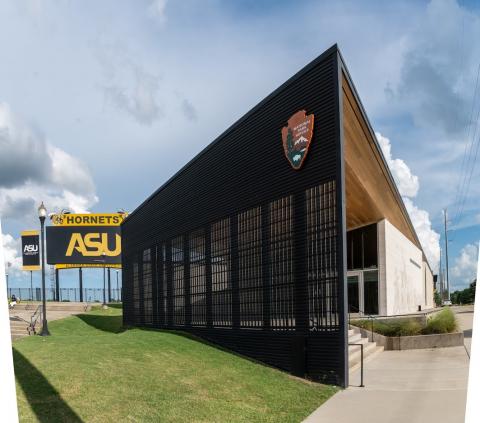By ASU News Service
The National Center for the Study of Civil Rights and African-American Culture at Alabama State University is proud to announce its upcoming online event, the “Ralph D. Abernathy Civil Rights Lecture Series: The 68th Observance of the Montgomery Bus Boycott.” This enlightening and thought-provoking virtual lecture took place on Monday, December 4, at 6 p.m., streaming live on YouTube (@ASUCenterforCivilRights) and on Facebook (@CivilRightsCenter).
The distinguished keynote speaker for this significant occasion is none other than United States Senator, Rev. Raphael Warnock, the Pastor of Ebenezer Baptist Church in Atlanta, Georgia. The historic Ebenezer Baptist Church holds a special place in the civil rights movement, being the same pulpit occupied by Rev. Dr. Martin Luther King, Jr. from 1960 to 1968.
Named in honor of one of Alabama State University’s most distinguished alumni, the annual Rev. Ralph David Abernathy Lecture Series aligns with the National Center’s mission to research, record, preserve, and teach the history of a people who, in the face of fear and intimidation, secured their full rights as American citizens.
This year’s program commemorates the sixty-eighth anniversary of the Montgomery Bus Boycott, a pivotal moment in history. The Bus Boycott’s success was attributed to the biweekly mass meetings that disseminated information, formulated strategies, and nurtured the spirit that fueled the 1955-1956 movement.
Join us as we reflect on the past, celebrate the progress made, and inspire future generations to continue the fight for justice and equality.
About the National Center for the Study of Civil Rights and African-American Culture at Alabama State University:
The National Center for the Study of Civil Rights and African-American Culture at Alabama State University is dedicated to advancing the understanding and appreciation of the civil rights movement and African-American culture. Through research, education, and preservation efforts, the Center strives to ensure that the lessons and legacy of the past continue to inspire a more just and equitable future.

